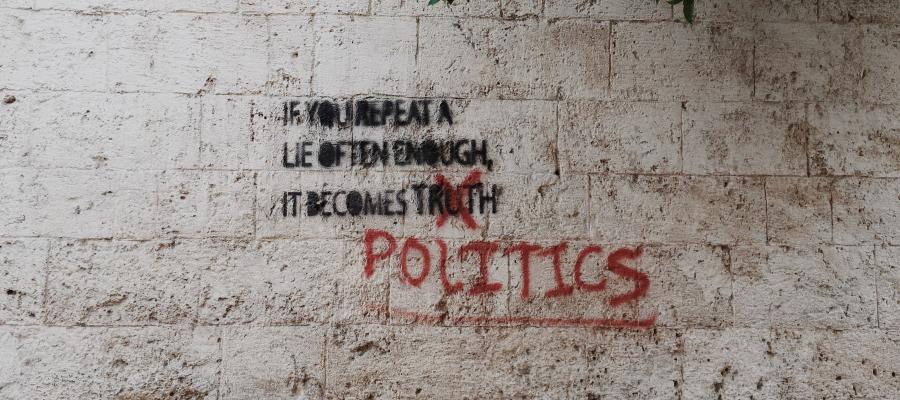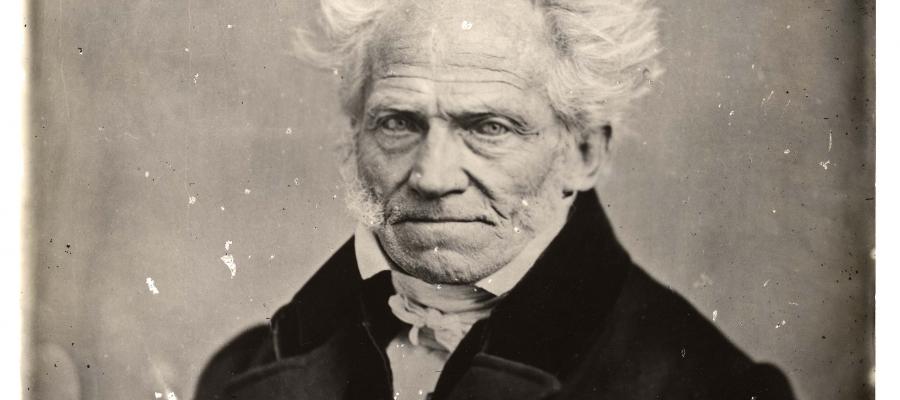Simone de Beauvoir
29
Feb 2016
Simone de Beauvoir was probably best known as a novelist, and a feminist thinker and writer, but she was also an existentialist philosopher in her own right and, like her lover Sartre, thought a lot about the human struggle to be free. As a philosopher trained in the analytic tradition, I have to admit, I don’t know a whole lot about existentialism, so I’m curious to discover on this week’s show with guest Shannon Mussett how Beauvoir’s feminist thought relates to her existentialist philosophy. Beauvoir’s most famous work was The Second Sex from 1949, a hugely influential...
Read moreIf God Is Dead, Why Isn't Everything Permitted?
26
Mar 2015
This week we're asking about Morality in a Godless World. There may or may not be a God; but there definitely is morality. So what’s the problem exactly? It's what Dostoyevsky said: if God is dead, then everything is permitted. That means no distinction between right and wrong and thus no morality. Now you can walk into any ethics class, on any secular campus in America, and you’ll find lots of philosophers talking about ethics and morality -- without ever mentioning a word about God. That suggests there’s a consensus among philosophers -- be they Utilitarians, Kantians...
Read morePhilosophy for the Young: Corrupting or Empowering?
02
Sep 2010
Our topic this week: Philosophy for the young – corrupting… or empowering? We asked that question in front of an audience of high school at Palo Alto High School, in Palo Alto, California. We record this program there last May, at the invitation of a teacher, Lucy Filppu, an English teacher by training, who teaches a special humanities course. We had a blast and we’d very much like to thank the students and teachers at Paly, as it is affectionately called, for having us. We’d love to go back sometime. Now the charge that philosophy...
Read moreSaint Augustine
25
Jan 2008
What an interesting philosopher he turned out to be! And an interesting man, too. Set aside his historical importance --- the fact that he above all others brought together the Greek and Hebrew aspects of Christianity, that his work against the heresies of Arianism, Pelagianism and Manicheanism was tireless and and that, as many think, he is responsible for many of the more unfortunate aspects of Christianity, such as the low status of women, the negative attitude towards sex and other enjoyable bodily appetites, and the harsh doctrine of original sin. Just read him as...
Read moreSay it Enough, They’ll Believe It
20
Nov 2020
If you repeat something, people are more likely to believe it. This isn’t speculation, and it’s not just some old saying. It’s a real phenomenon well established and extensively studied in cognitive science. It’s known as the illusory truth effect: hearing or reading a claim, especially repeatedly, makes you more likely to think it’s true. It was first documented in a 1977 publication by Lynn Hasher, David Goldstein, and Thomas Toppino. Since that groundbreaking work, a whole host of further studies have replicated the effect. The effect of repetition on apparent truth has been found...
Read moreScience, Philosophy, and Theology
06
Jun 2013
For this show, as the title suggests, we're thinking about science, philosophy, and theology—and what their relationship to one another should be. Before the Scientific Revolution, the lines between these three domains were pretty blurry. But as scientists started to gather further evidence for the Copernican model of the cosmos, directly contradicting the religious doctrine that placed the Earth at the center of God’s universe, the divide between science and religion grew. More and more, mysteries that were formerly explained by appeal to a supernatural being were replaced with...
Read moreSummer Reading Uncut
25
Jun 2023
Your friendly neighborhood Senior Prodcuer here, once again stepping out from behind the mixing board to bring you some bonus content from this week's 17th (!) annual Summer Reading special. Naturally we're most eager for you to listen to the edited broadcast and podcast, but there's always good stuff from each of the conversations we record for these multi-guest episodes that had to be left on the cutting-room floor. This year's program actually begins on TV. Josh and Ken had previously talked about The Good Place on our 2018 episode, The New Golden Age of Television, with one the...
Read morePostmodernism: The Decline of Truth
15
Jul 2019
Did postmodernism have any part to play in the rise of the post-truth era? At first glance that seems very hard to believe. When we see Kellyanne Conway talking about “alternative facts” or Rudy Giuliani saying “truth isn’t truth,” we don’t immediately assume they’ve been busy reading Jacques Derrida and Richard Rorty. Still, maybe the question isn’t quite so simple. For one thing, there are a few documented cases of right-wingers explicitly drawing on postmodernist theory. Take Vladislav Surkov, Kremlin ideologist. Or Phillip Johnson, one of the originators of the “...
Read moreThe Ethics of Pet Keeping
27
Jun 2020
Do we really have the right to own our fellow creatures? Are there some animals that should never be kept as pets? Is it okay to declaw a cat, clip a bird’s wings, or dock a dog's tail? These are some of the questions we're asking on this week's show. Ideally, keeping a companion animal is a good thing that enriches both of your lives. I can’t find fault with someone who adopts an animal from a shelter, and provides care throughout the animal’s life. But many people who keep pets fall short of this ideal. In worst-case scenarios, people neglect or abuse nonhuman animals in a variety of...
Read moreThe Temptation to Feel Baffled
16
Feb 2018
Yet another school shooting. This one happened on Valentine’s Day in Parkland, Florida, an otherwise attractive suburb north of Ft. Lauderdale. 19-year-old Nikolas Cruz, who has since confessed, carried an AR-15 assault-style rifle into Marjory Stoneman Douglas High School, from which he had been previously expelled, and murdered 17 people—14 students and three staff members—injuring several dozen others. Cruz had a history of strange behavior, including attacking squirrels and chickens. He had had disciplinary problems in school as well—hence the expulsion. He seems to have been affiliated...
Read moreFailing Successfully
08
Aug 2018
To say that a person can fail successfully sounds really weird. To succeed at something is to achieve some goal that you’re aiming at, and to fail at something is to not achieve a goal that you were trying to achieve. I might succeed or fail at bench-pressing my body weight. I succeed if I try to bench-press my body weight and manage to do it, and I fail if I try to do it but don’t succeed. So, success and failure seem to be incompatible. But this isn’t the end of the story. In fact, it’s just a short-sighted and pedantic beginning. If we loosen up and shift perspective a little bit,...
Read moreThe Limits of Medical Consent
08
May 2017
This week, we’re thinking about the Limits of Medical Consent. To get yourself in the right frame of mind begin by asking yourself whether it is ever permissible to force medical treatment on a patient against their will? What if they are so emotionally distraught that they can’t think straight? What if they might die without the treatment? Clearly, there are some people who are not fully competent to make their own medical decisions. But where exactly do we draw the line between the competent and the incompetent? At one extreme, we’ve got children. If a skittish nine-year old kid...
Read moreHarmful Jobs, Net Impact
13
Oct 2017
Consider this: You have just graduated law school and the Environmental Protection Agency, run under Scott Pruit, has offered you a position there. Pruit's goals at the EPA are to roll back regulations that help protect the environment—an agenda that you believe will do much more harm to the Earth than good—but on the bright side, you think, maybe you could try to change the EPA from the inside. So what should you do? Take the job and try to soften Pruit's efforts? Or would it be more productive to work for an environmental agency whose efforts you support? To put the question more broadly,...
Read moreSchopenhauer and Prozac
02
Apr 2005
I admit it: I've been reading a lot of Schopenhauer, especially his Essays on Pessimism. They are fascinating, and extremely beautifully (and of course provocatively) written. Here's a cheery and lovely passage: "Could we foresee it, there are times when children might seem like innocent prisoners, condemned, not to death, but to life, and as yet all unconscious of what their sentence means. Nevertheless, every man desires to reach old age; in other words, a state of life of which it may be siad; 'It is bad to-day, and it will be worse to0morrow; and so on till the worst of all." Hmm. ...
Read moreThe Philosophical Dimensions of Reparations
22
Feb 2017
At the end of our recent episode on reparations, John expressed bewilderment about what should be done. That’s understandable. The historical injustices perpetrated against blacks on American soil span four centuries and would be impossible to quantify. It seems impossible to settle who should pay reparations, given that slaveholders are all dead, and who should receive them, given that descent is a complicated affair. And the political sentiment is mostly contrary, even among liberals. One’s feeling of bewilderment is apt to increase, at least temporarily, upon reading relevant historical...
Read moreElection Special 2016 – Uncut
02
Sep 2016
Happy Labor Day from your friendly neighboorhood producer. This weekend we present our first Election Special, a pre-produced epsidoe taking a (mostly) Trump-free look at some of the deeper issues raised by this year's presidential campaign. Once again I thought I'd offer a behind-the-scenes look (and listen) into the show's production. The idea of an election-related episode actually came up at a production meeting early in the year. Our student researchers had proposed a multi-segment show focusing on the moral duty to vote, the role of money in elections, and...
Read moreDance as a Way of Knowing
30
Sep 2015
The title of this week’s show might sound a little mysterious. How can dance, of all things, be a way of knowing? Most things we know, we know either through perception or through thinking and reasoning. But on the surface of things, it doesn’t look like dance is either a form of perception or a form of thinking. So, in what sense is dance a way of knowing? We might want to start by saying more about what knowing is. The traditional philosophical conception says that to know something, you must have a justified true belief. You can’t know...
Read moreDoes Postmodernism Mean Moral Relativism?
12
Sep 2009
posted by Gary AylesworthToward the end of last Sunday’s broadcast of Philosophy Talk, a caller asked whether the “moral relativism” supposedly rampant in our time was part of postmodernism. While I would certainly agree that the current hysteria over moral relativism is a postmodern phenomenon, I don’t agree that postmodern thought takes an “anything goes” view of politics or ethics, or that it prevents us from saying that the terrorists of 9/11 committed mass murder. Instead, I see postmodern thought as a kind of moral humility, a humility that prevents us from assuming that the world...
Read morePhilosophy Talk Moves to Sunday
25
Jul 2006
We're back in the studio after our trip to DC. DC was great fun and we had a great time doing our show in the Capitol Building. There wasn't exactly a huge turn-out. Unfortunately, invitations to the event didn't go out until pretty late in the game, and of those who RSVP'ed that they were coming, there were a fair number of no-shows. But still, the audience was quite engaged and engaging. Kathleen Sullivan was a truly dynamite guest. The program will probably air in November, the Sunday before election day. It was...
Read moreAnatomy of a Terrorist
25
Jun 2014
This week we're looking at the Anatomy of a Terrorist. But how exactly do you know what is or isn't terrorism? There's an old saying -- “One person’s terrorist is another person’s freedom fighter.” That suggests the words “terrorism” and “terrorist” are contested terms. Are these words so entangled in rhetoric and polemics that they're useless for objective philosophical discussion? The key to a philosophically useful definition is the root word, ‘terror.’ Terrorists are people who spread terror. They do so by injuring and killing people -- often lots of people, especially innocent...
Read more2021: The Year in Sound
25
Dec 2021
As Senior Producer, every once in a while I like to step out from behind the mixing board to give a behind-the-scenes look at some aspect of the program—especially when the Philosophers themselves are off on their holiday breaks. For this week's annual end-of-year special, "The Examined Year" (because the un-examined year is not worth reviewing!), we tried something a bit different, though not unprecedented. As a modular episode featuring three different conversations, it's often a challenge to come up with a "Roving Philosophical Report" that satisfyingly captures the sounds and...
Read moreCooperation and Conflict
16
Oct 2011
Our topic this week is Cooperation and Conflict. Cooperation is found in many species of animals. Take dolphins, wolves, and chimpanzees. They’re all amazingly successful hunters. Why? Because they’re highly cooperative hunters. And there’s no doubt that human beings have taken the art of cooperation to levels that our animal friends can’t begin to match. Take money. Money makes possible the kind of co-operation and coordination required to make a sprawling economic system work. But it’s not just in the...
Read moreBeyond the Turing Test
05
Feb 2025
Is there anything computers can't do—or at least won't be able to do at some future time? They have already gotten pretty powerful: we've developed cars that drive themselves, protein-folding software that discovers new medicines, and massive encyclopedias you can fit in your pocket—not to mention all those tools to help students cheat on their papers. The way things are going, ten years from now we may all be obsolete. And yet there are still plenty of things humans can do that computers can’t, like feel emotions, fall in love, or hold a real conversation. That's why many of us think it's...
Read moreIs Envy Always a Vice?
30
Jan 2019
At first glance, it seems hard to find anything positive in the phenomenon of envy. Someone else has something you don’t—a possession, a skill, a character trait, a relationship, a lifestyle—and that makes you feel bad. You long to have what she has; you resent her for having it; you feel bad about yourself for lacking it. Surely none of that’s is great. And it gets worse: envious feelings can lead to antisocial behavior. Maybe you’ll try to steal the object from her. Maybe you’ll try to bring her down to your level. It’s this antisocial component that makes envy not just a bad idea...
Read moreWhat Is a “Vivid” Mental Image?
23
Jan 2020
Close your eyes, and imagine a bedroom you lived in as a child. Take a moment in order to do a thorough job. Try to visualize the spatial layout of the room, the colors and textures, details of any clutter around your floor and desk. All but a few of us experience mental images when we try to do this. But what is a mental image? If you can summon one to mind, you probably already have a sense of what it is. If you don’t, it’s hard to define in any other terms. You might say it’s like a picture that belongs to the “mind’s eye.” Or you could compare what it’s like to have a mental image...
Read more





















